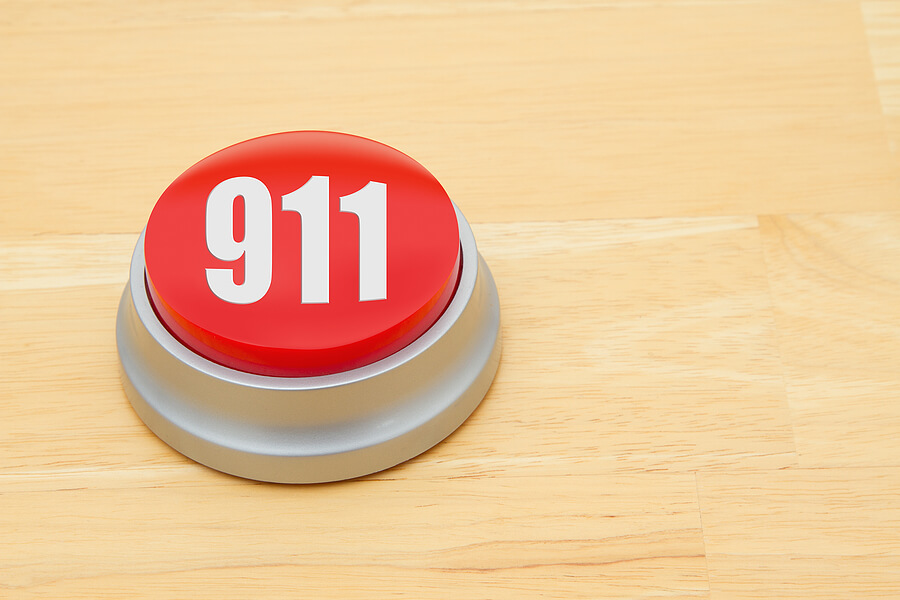For individuals who rely on hearing aids, facing an emergency can be doubly challenging. These situations usually demand quick action and clear communication. But if your hearing aids aren’t working properly, you might not be ready.
Preparing for emergencies when you depend on hearing aids involves more than just having an action plan; it requires specific strategies to make sure your hearing aids are as ready as you are.
Understanding the Risks
Emergencies can disrupt your daily routine and put you in unfamiliar situations. Whether you’re facing natural disasters like hurricanes and earthquakes or man-made crises such as power outages, clear hearing becomes more important than ever.
Essential Hearing Aid Emergency Kit
Your first step in emergency preparedness with hearing aids should be assembling an emergency kit specifically tailored to your hearing needs. Keep this packed and ready to go so you’ll always be prepared in an emergency situation.
This kit should include:
- Extra Batteries: Stock an adequate supply of batteries specific to your hearing aid model. Battery life can be unpredictable, and in an emergency, stores may be inaccessible. Make sure you keep several pairs of batteries in your emergency kit.
- Portable Charging Case: For those using rechargeable hearing aids, a portable charging case can be a lifeline if the power is out for an extended period. Keep an extra charging case ready to go.
- Drying Kit: Moisture and humidity can damage hearing aids. A drying kit helps to keep moisture out of your hearing aids and can reduce the risk of hearing aids malfunctioning.
- Cleaning Tools: Keeping your hearing aids clean is vital, particularly when regular servicing might not be available. Include a hearing aid brush and wax pick in your kit.
- Waterproof Containers: Protect your hearing aids from water damage with airtight and waterproof containers. You should have at least one or two waterproof cases for your devices.
- Written Instructions and Warranty Information: Have printed instructions for the maintenance and use of your hearing aids, along with warranty information, in case assistance is required.
Communication Plan
In addition to preparing your hearing aids, you can create a robust communication plan that accommodates your hearing needs.
- Inform: Make sure your family, friends, and emergency responders are aware of your hearing impairment. They can help make sure you’re informed and safe during emergencies.
- Alternate Communication Methods: Include a notepad and pen in your emergency kit to communicate if your hearing aids fail. Consider learning basic sign language or having a smartphone app that can transcribe speech to text in real time.
- Contact List: Keep a written list of important contacts, including family members, doctors, and local emergency services that you can call in an emergency.
Additional Precautions
Beyond your emergency kit and communication plan, there are several other precautions to consider:
- Regular Maintenance: Make sure your hearing aids are always in great working condition by keeping up with regular maintenance and check-ups. This will give you the best possible sound quality in your day-to-day life, and also keep you prepared for any emergencies.
- Use Alerts and Notifications: Many modern hearing aids are Bluetooth-enabled and can connect to your smartphone. You can use this feature to receive alerts and notifications directly.
- Backup Hearing Aid: If possible, keep a backup hearing aid. While this may not be feasible for everyone due to cost, having a spare can be invaluable in an emergency.
- Wearable Carry Case: In an emergency, you may need to leave in a hurry. Consider a small, wearable pouch or case that keeps your hearing aid essentials on your person.
Staying Informed
Stay informed about local emergency services and resources for individuals with hearing loss. Many regions offer services like text-based emergency alerts and visual alarm systems. Sign up for any alert systems in your area so you can stay informed.
Practice Your Plan
Having a plan and emergency kit is the first step, but practicing your response to different scenarios is also crucial. Regular drills can help you and your loved ones stay prepared to use your communication strategies and access your emergency kit quickly.
Visit Us for Hearing Aid Maintenance
Emergencies are unpredictable, but preparing for them doesn’t have to be. Take the steps to ensure both you and your hearing aids are ready for whatever comes. With the right preparation, you can navigate any situation with confidence. Remember, the key to effective emergency preparedness is not just having a plan, but having a plan adapted to your unique needs.
If you need any support with your hearing aids or you need regular hearing aid maintenance, visit us for more support.

